1923 selected standards and hits
_______________________________
 Who’s Sorry Now? (Ted Snyder, Bert Kalmar, Harry Ruby)
Who’s Sorry Now? (Ted Snyder, Bert Kalmar, Harry Ruby)
The Charleston (James P. Johnson, Cecil Black)
It Ain’t Gonna Rain No Mo’ (Wendell Hall)
Mexicali Rose (Jack B. Tenney, Helen Stone)
I Cried For You (Gus Arnheim, Arthur Freed, and Abe Lyman)
Yes! We Have No Bananas (Frank Silver, Irving Cohn)
Parisian Pierrot (Noël Coward)
_______________________________
Who’s Sorry Now? (Ted Snyder, Bert Kalmar, Harry Ruby)
The 1958 recording of Who’s Sorry Now? by Connie Francis was so popular that song has been popularly associated with her ever since. But long before that it had been a jazz standard. Notable recordings include those by Harry James, Jerry Gray & his Orchestra (featuring Glenn Miller), Ella Fitzgerald, Benny Carter, and Willie “The Lion” Smith.
Marion Harris – 1923
.
Bob Crosby’s Bob Cats — issued in June 1938 on (US) Decca 1865, as the B-side of “March of the Bob Cats” — issued in 1938 in the UK on Decca F.6790, b/w “March of the Bob Cats”
.
Jam session featuring Castle Jazz Band, Kid Ory’s Creole Jazz Band, Pete Daily’s Chicagoans, and Charlie Lavere’s Chicago Loopers – recorded at the Dixieland Jubilee, Los Angeles Shrine Auditorium October 7th, 1949.
.
Connie Francis – 1958 — a large hit: #4 in the US, six weeks at #1 in the UK
.
Who’s Sorry Now? was performed as an extravagant dance number for the 1979 movie All That Jazz, choreography and direction by Bob Fosse. The clip below shows part of an adaption from that number for the Broadway revue Fosse.
___________________
(Above) an extract from the book Africanisms in American Culture, by Joseph E. Holloway (2005) pp. 51-52.
The Charleston (James P. Johnson, Cecil Black) – Johnson, one of the originators of the stride style of jazz piano playing, was inspired by dockworkers from [in?] South Carolina inspired to compose the music. The dance known as the Charleston came to characterize the times. It was this song that propelled the dance to international popularity and a place in musical history. – adapted from Wikipedia
James P. Johnson — piano roll, 1925
.
Quintette du Hot Club de France — recorded in Paris on 21 April 1937 — QHCF: Stéphane Grappelli (v), Django Reinhardt, Pierre Ferret, Marcel Bianchi (g), Louis Vola (b)
_____________________
It Ain’t Gonna Rain No Mo’ (Wendell Hall)
Wendell Hall – 1923
.
Carl Fenton’s Orchestra, with vocal duet – 1924
.
Follow the Bouncing Ball! – 1949
_______________
Mexicali Rose (Jack B. Tenney, Helen Stone) is a love story of a man who must leave his love for a while.
The chorus, adapted from Wikipedia:
|
|
| Helen Stone[1] | Manuel Sanchs De Lara (trans)[2] |
Gene Autry — Autry first recorded the song in 1935. I don’t know if this is that version. The provider says it’s from a recent compilation called The Last Roundup (2007)
________________________
I Cried For You (Gus Arnheim, Arthur Freed, and Abe Lyman)
The Boardwalk Orchestra – undated
.
Billie Holiday with Abe Lyman’s Orchestra – 1936
.
Judy Garland — from the soundtrack of Babes in Arms (1939)
.
Count Basie and his Orchestra, vocal by Helen Humes
From Wikipedia:
Yes! We Have No Bananas – (Frank Silver, Irving Cohn) is the title of a novelty song by Frank Silver and Irving Cohn from the 1922 Broadway revue “Make It Snappy.” Sung by Eddie Cantor in the revue, the song became a major hit in 1923 (number 1 for five weeks) when it was recorded by Billy Jones, Arthur Hall, Irving Kaufman and others. It was covered later by Benny Goodman and his Orchestra, Spike Jones & His City Slickers and many more.
Billy Jones – 1923
.
The Great White Way Orchestra with Billy Murray – 1923
.
Bailey’s Luck Seven (Sam Lanin’s band), with vocal by Irving Kaufman – 1923
.
Spike Jones & his City Slickers — issued in 1950 on (US) RCA Victor 20-3912 (78 rpm), and RCA Victor 47-3912 (45 rpm), in each case c/w “Yaaka Hula Hickey Dula” — issued in the UK in 1950 on HMV B.9988, as the B-side of “Rudolf, the Red-Nosed Reindeer”
.
I’ve Got the Yes! We Have No Bananas Blues – recording by the Jazz-O-Harmonists – 1923
________________________
Parisian Pierrot (Noël Coward)
According to Richard Briers in Coward & Company, the playwright wrote “Parisian Pierrot” for his close friend Gertrude Lawrence in his review London Calling! but apparently she didn’t think much of it. The song was to be performed wearing a [P]ierrot costume, and Lawrence gave both to her understudy in André Charlot’s Revue of 1924, Jessie Matthews. In New York, she changed her mind and performed it herself, although she didn’t record it until November 3, 1931 – a pressing that was originally rejected. Coward recorded it in 1936.
According to the Noël Coward Society, Coward wrote the song in Berlin between December 9th and 18th, 1922. It was published in 1923 by Keith Prowse of London.
Coward himself said “The idea of it came to me in a night-club…a frowsy blonde, wearing a sequin chest-protector and a divided skirt, appeared in the course of the cabaret with a rag pierrot doll dressed in black velvet. She placed it on a cushion where it sprawled in pathetic abandon while she pranced around it emitting gutteral noises. Her performance was unimpressive but the doll fascinated me”. The title came into his head in the taxi on his way back to the hotel.
Gertrude Lawrence died in 1952, and in 1968 Julie Andrews performed the song in her biopic Star!. (thanks, Alexander Baron – London, England, for all above)
Noël Coward – 1936
.
Julie Andrews in Star!, a Gertrude Lawrence biopic – 1968
.
Texas – Twentieth-Century Blues – The Songs Of Noël Coward (1998)
.











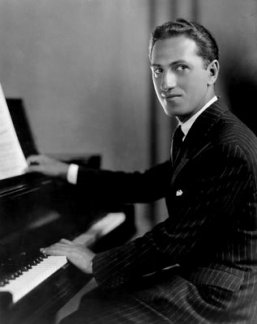

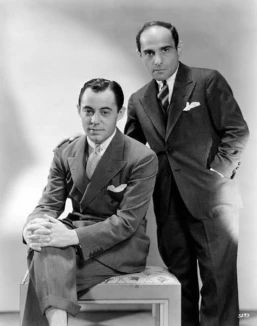

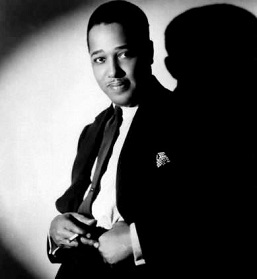


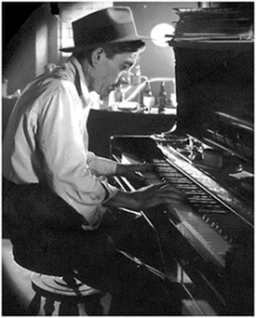
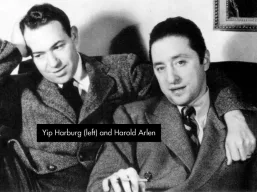
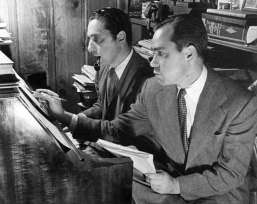



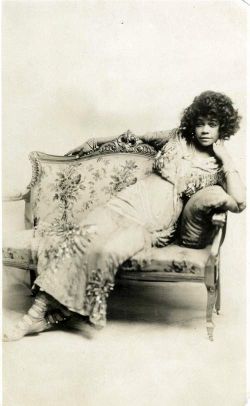





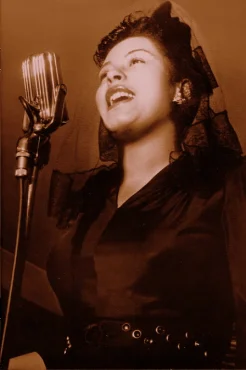




Dec 15, 2010 @ 06:44:43
I am looking for the words (verse and chorus) of “I Love My Chili Bom Bom” by Walter Donaldson and Cliff Friend published in 1923.
LikeLike
Dec 15, 2010 @ 17:54:17
Hi Bill,
Haven’t been able to find the words in a brief search, but sheet music is available online at several places including Vintage marelibri – I Love My Chili Bom Bom, and Kay’s Secondhand Books and Sheet Music (via Bookshops.com.au). — Jim (links corrected 17 Feb 2012)
One of the commenters on the video posting at Dailymotion gives a portion of the lyrics as follows:
You’ve heard about some guys that some girls soon forget,
But here’s one guy that you’ll remember all your life I’ll bet
I love my Chili Bom Bom, and Chili Bom Bom loves me
LikeLike
Dec 15, 2010 @ 17:55:24
I Love My Chili Bom-Bom (m. Walter Donaldson, w. Cliff Friend)
The Savoy Havana Band at the Savoy Hotel, London — issued in 1924 on Columbia (UK) 3435, b/w “Pasadena”
From Wikipedia:
The Savoy Havana Band was a British dance band of the 1920s. It was resident at the Savoy Hotel, London, between 1921 and 1927.
The band was formed by the American saxophonist Bert Ralton in 1921. Originally there were six players including Ralton. It was later increased to ten players. From 1924 it was led by the English violinist Reginald Batten. Both the Savoy Havana Band and their colleagues the Savoy Orpheans were under the management of Wilfred de Mornys.
Among the players was a young American saxophonist, Rudy Vallee, whose attempts to become a vocalist were discouraged by his fellow-players. Another member of the ensemble was the pianist Billy Mayerl.
____________________
LikeLike
Dec 27, 2010 @ 04:01:23
dear bill…
i have an original 78 rpm record with the words & music of chilli bom bom on it, it is a record of jack kaufman & orchestra from 1923. i have made it into a mp3 & edited it with goldwave to reduce crackles & hiss. it you want it please get in contact with me. the other side is also one of my favorites… “so i took the $50,000”..
LikeLike
Aug 28, 2011 @ 21:43:13
http://www.ebay.com/itm/1923-So-took-50-000-Meskill-Gumble-De-Beck-/170662216695
LikeLike
Feb 17, 2012 @ 00:17:13
“I Love My Chili Bom-Bom” will be added to the Walter Donaldson feature page, or might possibly kickoff a second page (The first is very long). That is, unless I forget again.
LikeLike
Jan 16, 2017 @ 16:40:32
Done. And it took less than five years! See the page Donaldson, Walter: selected standards, hits, and other songs, 1918-1934.
LikeLike